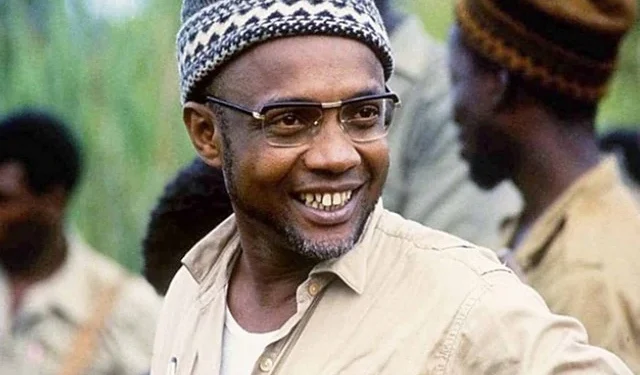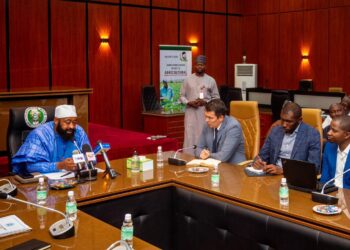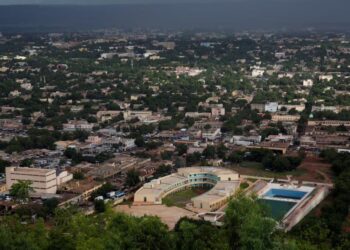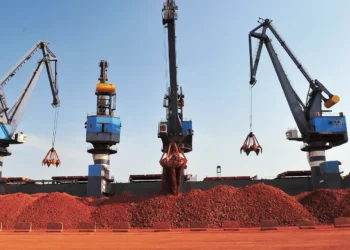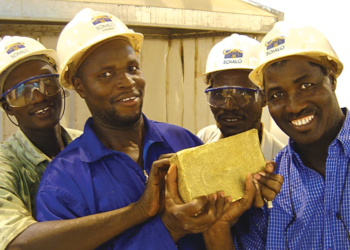Amílcar Cabral is considered one of the most prominent African revolutionary leaders and thinkers of the 20th century and a pivotal figure in the struggle of Guinea-Bissau and Cape Verde for independence from Portuguese colonial rule. Cabral was a profound revolutionary theorist who laid the theoretical and practical foundations for the liberation struggle in Africa, extending beyond his country’s borders to become an inspiration for liberation movements worldwide. His ideas on culture, consciousness, and independent development are fundamental to understanding the dynamics of national liberation in the Third World.
Amílcar Lopes Cabral was born on September 12, 1924, in Bafatá, Guinea-Bissau, to Cape Verdean parents. His family came from a poor background but valued education. He completed his secondary education in Cape Verde and then moved to Lisbon, Portugal, to study agricultural engineering at the Instituto Superior de Agronomia. In Lisbon, where Salazar’s authoritarian dictatorship was in power, Cabral became involved in underground political student movements with other African students, including Mário Peña de Andrade, Agostinho Neto, and Marcelino dos Santos. This period was crucial in shaping his political consciousness and developing a critical view of colonialism. He became acquainted with Marxist and African nationalist ideas and began to analyse the mechanisms of colonial oppression and their impact on African societies.
After graduating in 1950, Cabral returned to Guinea-Bissau and worked as an agricultural engineer. This job afforded him the unique opportunity to travel throughout the country, witness firsthand the living conditions of peasants and workers, and understand the depth of the suffering and exploitation imposed by the colonial regime. This field experience deepened his conviction about the necessity of armed struggle to achieve independence.
In 1956, Amílcar Cabral, along with his brother Luís Cabral and other comrades, founded the African Party for the Independence of Guinea and Cape Verde (PAIGC). The party’s primary goal was to achieve the two countries’ complete independence from Portugal and establish a just and independent society. From the outset, the party faced enormous challenges, as the Portuguese authorities imposed a repressive regime that prohibited any form of political organisation.
“Always bear in mind that the people are not fighting for ideas, for the things in anyone’s head. They are fighting to win material benefits, to live better and in peace, to see their lives go forward, to guarantee the future of their children…” – Amilcar Cabral, Revolution in Guinea, written in 1965.
Cabral realised that armed struggle could not succeed without broad popular support and that this support must be built on a foundation of political and cultural awareness. Therefore, in its early years, the PAIGC focused its efforts on mobilisation, clandestine organisation, and educating the local population about the nature of colonialism and the necessity of liberation. Its strategy was to build strong grassroots bases in rural areas, where it believed the peasantry was the backbone of any genuine revolution.
Amílcar Cabral combined revolutionary practice with rigorous theoretical analysis. He focused on several key concepts, such as the importance of culture and consciousness, as Cabral believed that liberation was not merely a military or political issue but was essentially a cultural process. He believed that colonialism sought to destroy the indigenous culture of colonised peoples, leading to cultural and psychological “alienation.” Therefore, he believed that the restoration of culture and pride in national identity were integral parts of the liberation struggle. He famously said, “National liberation is above all a cultural act.”
“In Africa, we are for an African policy which seeks to defend first and foremost the interests of African peoples, of each African country, but also for a policy which does not, at any time, forget the interests of the world, of all humanity.” Opening address at the CONCP Conference held in Dar Es-Salaam, 1965.
Contrary to some Marxist theories that focused on the industrial working class, Cabral recognised that in the African context, especially in Guinea-Bissau, peasants constituted the overwhelming majority and the most exploited class. Therefore, he worked to mobilise peasants and raise awareness of their role in the revolution.
Cabral was also outspoken in his criticism of the petty bourgeoisie (intellectuals and bureaucrats), which often emerged as leaders of liberation movements. He warned of this class’s tendency to surrender after independence, reproducing the same structures of exploitation that existed during the colonial era. He called on the petty bourgeoisie to “commit class suicide” in order to truly integrate with the masses.
“Hide nothing from the masses of our people. Tell no lies. Expose lies whenever they are told. Mask no difficulties, mistakes, failures. Claim no easy victories…” Revolution in Guinea: Selected Texts.
Similarly, Cabral’s goal was not limited to political independence; he believed that true liberation required the building of an economically and socially independent society. Therefore, even in the midst of war, the PAIGC began building schools, health clinics, and agricultural projects in the liberated areas, demonstrating that liberation meant tangible improvements in people’s lives.
In 1963, the PAIGC began an armed struggle against Portugal. Despite being outnumbered and outgunned by Portuguese forces, the PAIGC forces, led by Cabral, achieved remarkable successes due to their guerrilla warfare strategy, local support, and tight organisation. Cabral’s military philosophy was based on flexibility, rapid attacks, and avoiding direct confrontation, while focusing on building social infrastructure in the liberated areas.
By the early 1970s, the PAIGC controlled two-thirds of Guinea-Bissau, effectively administering these areas and providing basic services to the population. The liberation movement gained widespread international recognition, and Cabral received support from countries such as Sweden, the Soviet Union, and Cuba, as well as several independent African states.
Amilcar Cabral was a powerful and influential voice in international forums, travelling the world to explain his people’s cause, refute Portuguese lies, and mobilise support for the African liberation movement. Unfortunately, Cabral did not live to see Guinea-Bissau and Cape Verde achieve full independence.
“Let us be precise: for us, African revolution means the transformation of our present life in the direction of progress. The prerequisite for this is the elimination of foreign economic domination, on which every other type of domination is dependent”. Speech made at the 3rd Conference of the African Peoples held in Cairo, March 25-31, 1961.
On January 20, 1973, Amílcar Cabral was assassinated in Conakry, Guinea, by dissident elements within his own party, believed to have been supported by Portuguese agents. His assassination was a devastating loss for the liberation movement and for Africa as a whole.
Despite his assassination, the PAIGC movement continued its struggle, and Guinea-Bissau was able to declare its independence in September 1973 (full international recognition in 1974 after Portugal’s Carnation Revolution), followed by Cape Verde in 1975.















































